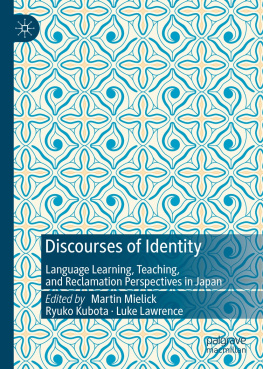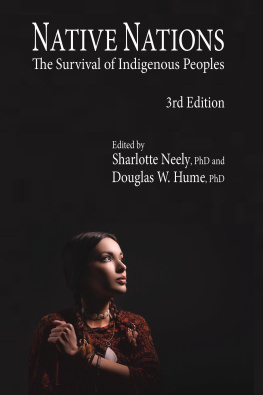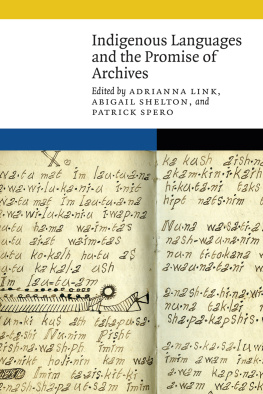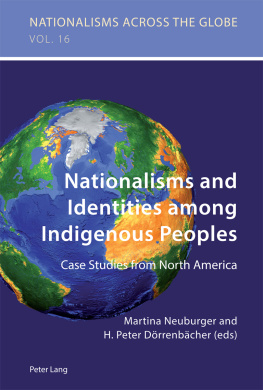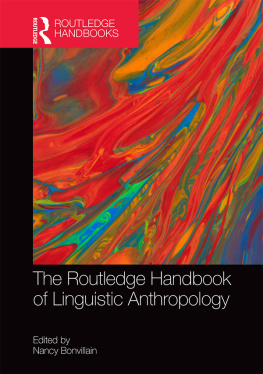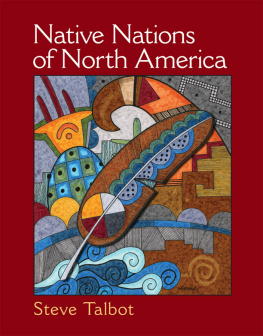p.i
Engaging Native American Publics
Engaging Native American Publics considers the increasing influence of Indigenous groups as key audiences, collaborators, and authors with regards to their own linguistic documentation and representation. The chapters critically examine a variety of North American case studies to reflect on the forms and effects of new collaborations between language researchers and Indigenous communities, as well as the types and uses of products that emerge with notions of cultural maintenance and linguistic revitalization in mind. In assessing the nature and degree of change from an early period of salvage research to a period of greater Indigenous self-determination, the volume addresses whether increased empowerment and accountability has truly transformed the terms of engagement and what the implications for the future might be.
Paul V. Kroskrity is a Professor of Anthropology at the University of California, Los Angeles, United States. He served as Chair of the Interdepartmental Program in American Indian Studies and is a past President of the Society for Linguistic Anthropology.
Barbra A. Meek is an Associate Professor of Anthropology and Linguistics at the University of Michigan, United States.
p.iv
First published 2017
by Routledge
2 Park Square, Milton Park, Abingdon, Oxon OX14 4RN
and by Routledge
711 Third Avenue, New York, NY 10017
Routledge is an imprint of the Taylor & Francis Group, an informa business
2017 selection and editorial matter, Paul V. Kroskrity and Barbra A. Meek; individual chapters, the contributors
The right of Paul V. Kroskrity and Barbra A. Meek to be identified as the authors of the editorial material, and of the authors for their individual chapters, has been asserted in accordance with sections 77 and 78 of the Copyright, Designs and Patents Act 1988.
All rights reserved. No part of this book may be reprinted or reproduced or utilised in any form or by any electronic, mechanical, or other means, now known or hereafter invented, including photocopying and recording, or in any information storage or retrieval system, without permission in writing from the publishers.
Trademark notice: Product or corporate names may be trademarks or registered trademarks, and are used only for identification and explanation without intent to infringe.
British Library Cataloguing-in-Publication Data
A catalogue record for this book is available from the British Library
Library of Congress Cataloging-in-Publication Data
A catalog record for this book has been requested
ISBN: 978-1-138-95094-8 (hbk)
ISBN: 978-1-315-66849-9 (ebk)
Typeset in Times New Roman
by Swales & Willis Ltd, Exeter, Devon, UK
p.viii
Jane Anderson is Assistant Professor of Anthropology and Museum Studies at New York University. Her work is focused on the philosophical and practical problems of intellectual property law, repatriation, and Indigenous rights. She works with a variety of Native American communities negotiating control and ownership over tribal knowledge resources and cultural heritage held within archives and museums. Her most recent project with Kim Christen is Local Contexts ( www.localcontexts.org ). This project includes the new Traditional Knowledge (TK) Labels as an educational intervention to address the needs of Indigenous communities to manage their intellectual property rights and cultural heritage specifically within the digital environment. This project just received a three-year award from the National Endowment for the Humanities. She is co-editor with Haidy Geismar on the forthcoming Routledge Companion to Cultural Property and is working on the manuscript The Memory of Property: Decolonial Futures for Ethnographic Collections.
Erin Debenport, a linguistic anthropologist, is Assistant Professor in the Department of Anthropology at the University of California, Los Angeles. Her book, Fixing the Books: Secrecy, Literacy, and Perfectibility in Indigenous New Mexico (SAR, 2015), ethnographically explores the creation and control of written texts in a Pueblo community. Her new project, based in the United StatesMexico border region, looks at the inverse: how language is used to render political groups visible and viable. Since 2003 she has contributed to language documentation and revitalization programs in Kiowa-Tanoan speaking communities, collaborating with community members on creating archives and pedagogical materials. Her work has appeared in journals that include Journal of Linguistic Anthropology; Language & Communication; International Journal of the Sociology of Language; and American Indian Culture and Research Journal.
Margaret Field is a linguist by training and Professor of American Indian Studies at San Diego State University. Her recent work focuses on language documentation as well as sociolinguistics, pragmatics, and language ideologies in American Indian communities. Since 2008 she has been working in Kumiai and Koalh communities of Baja California Norte documenting language variation and oral literature. Together with Paul V. Kroskrity she edited Native American Language Ideologies: Language Beliefs, Practices, and Struggles in Indian Country and she is currently collaborating with Amy Miller and others on a volume of Kumiai oral literature.
p.ix
Paul V. Kroskrity is Professor of Anthropology and American Indian Studies at UCLA. He received his B.A. from Columbia and earned his Ph.D. in Anthropology from Indiana University in 1977. He has worked extensively with the Arizona Tewa and Western Mono communities since 1973 and 1980, respectively, and engaged in a variety of linguistic, sociolinguistic, language renewal, and language ideological studies. This research resulted in numerous articles and books on these topics including: Language, History, and Identity: Ethnolinguistic Studies of the Arizona Tewa (1993); the edited volumes Regimes of Language: Ideologies, Polities, and Identities (2000) and Telling Stories in the Face of Danger: Language Renewal in Native American Communities (2012); the co-authored interactive multimedia CD-ROM Taitaduhaan: Western Mono Ways of Speaking (2002); and the book, co-edited with Margaret Field, Native American Language Ideologies: Beliefs, Practices, and Struggles in Indian Country (2009). He is a past President of the Society for Linguistic Anthropology.
Hannah McElgunn is a Ph.D. student in the Department of Anthropology at the University of Chicago, also pursuing a joint degree with the Department of Linguistics. Her research considers the relationship between language, property, and knowledge. She is particularly interested in the way that historical language documentation work and contemporary language revitalization efforts intersect with legal regime of intellectual property in regards to the Hopi language.
Barbra A. Meek, a Comanche citizen and professionally trained linguist and anthropologist, is Associate Professor of Anthropology and Linguistics and Faculty Affiliate of the Native American Studies Program at the University of Michigan, Ann Arbor. She has published on language endangerment, revitalization and the interplay of language and racial-ethnic difference in popular film. She is the author of


